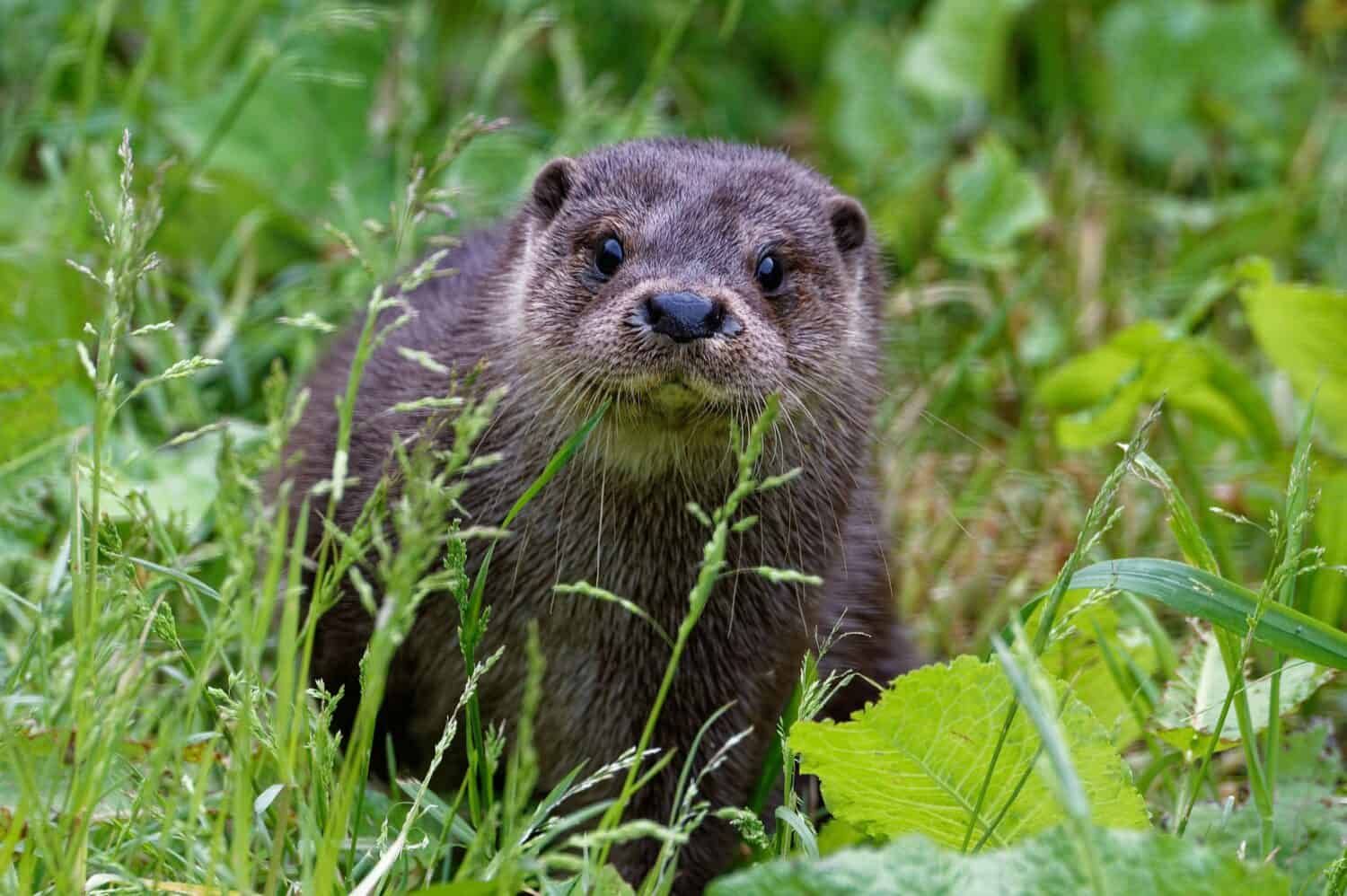The luxury Grosvenor Pulford Hotel and Spa, located in northwest England, has recently been hit by a skilled sneak thief. But this pilferer didn’t bag jewels or expensive tech. Instead, this little robber helped himself to a high-dollar snack- koi fish. The hotel released security footage of a mischievous otter sneaking into the resort’s ponds and making away with the brightly-colored fish, valued at about $2,500 per individual. And this wasn’t a one-and-done operation. The impressive otter stole koi fish repeatedly.
The hotel had been trying to ascertain why their fish were mysteriously disappearing from their two ponds. The staff set up cameras around the area, and soon enough, they got their answer. The footage shows a crafty otter sneaking its way around the pond’s fencing and plucking the koi from the water with its impressive teeth.
In total, the hotel estimates that the otter snagged about 50 koi fish, totaling a whopping $124,652 in losses. The hotel has yet to catch this cutest of thieves, but hopefully, their plan is a benevolent catch and release of the clever critter to another suitable location.
Otters in the UK
The Eurasian otter (Lutra lutra) is a semi-aquatic member of the weasel family. This is the only wild species found in the UK, and thus, the species of otter that stole koi fish from the hotel’s pond. Just a few decades ago, people drove this species almost to extinction across many regions of the UK. Particularly, in Wales and England, otters nearly died out in the 1970s. This rapid decline was due to widespread, devastating pesticide pollution, specifically organo-chlorine, of waterways. In the waterways of western and northern Scotland, the population fared a bit better. They remained common and widespread across Ireland where they did not face these pollution threats.
Thanks to intensive restoration and conservation efforts, including banning the use of harmful pesticides, and restoring habitats, the Eurasian otter has made an impressive comeback. Today, otters are present in all of England’s counties.
Unfortunately, however, otters are actually in decline once again in Wales. Their population increased dramatically from the 1970s to 2010. However, researchers have seen a sharp decline from 2010 to the present. The reason for this decline is still being determined. Scientists emphasize that the health of Wale’s otter population is an important biological marker of the larger ecosystem’s health.

The Eurasian otter is the only wild species found in the UK.
©Colin Seddon/Shutterstock.com
The photo featured at the top of this post is © iStock.com/Troy Levengood
Thank you for reading! Have some feedback for us? Contact the AZ Animals editorial team.







